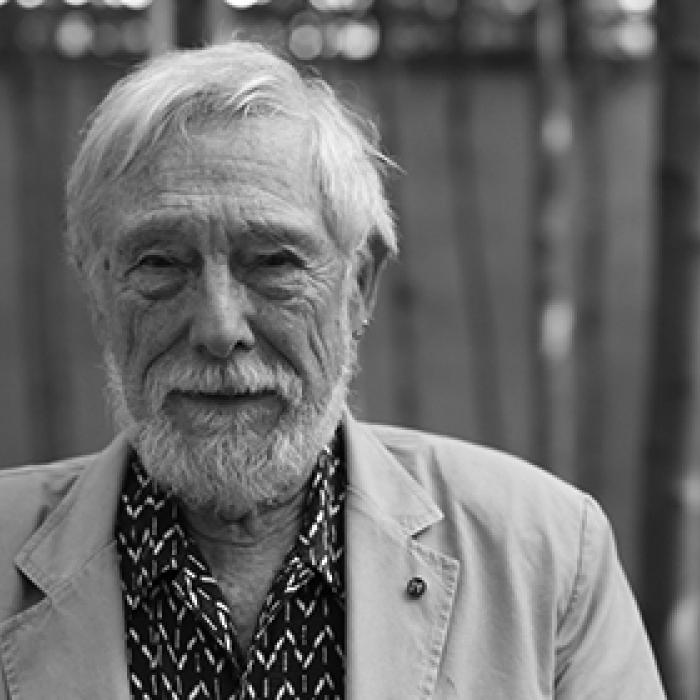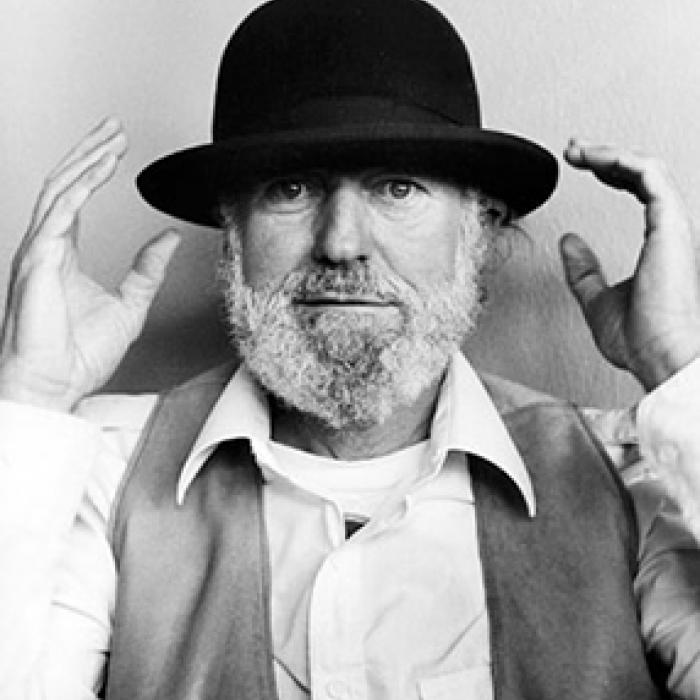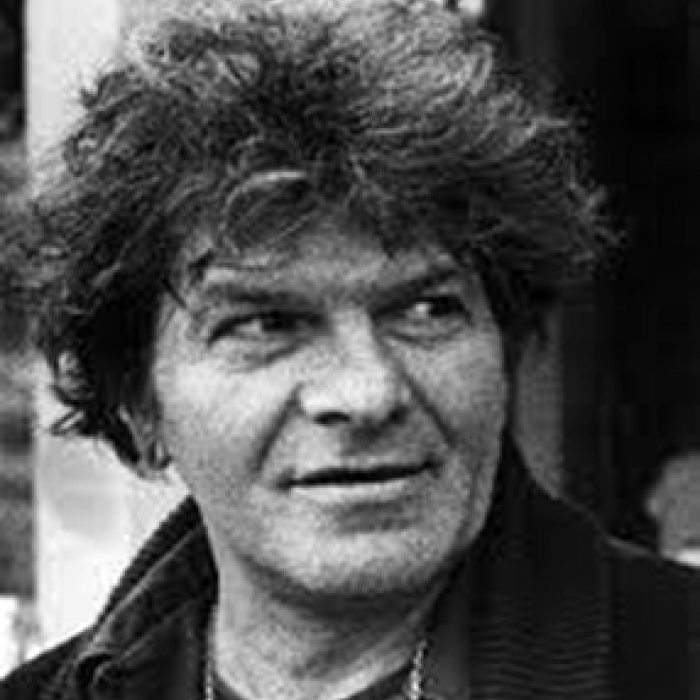Bob Kaufman
Bob Kaufman was born in New Orleans on April 18, 1925. He was one of thirteen children born to a Black Catholic mother from Martinique; his father was a German Orthodox Jew. As a child, Kaufman took part in both Catholic and Jewish religious services; he was also exposed to the voodoo beliefs of his maternal grandmother. At the age of thirteen, he ran away and joined the Merchant Marine, surviving four shipwrecks and circumnavigating the globe nine times in the next twenty years.
When Kaufman left the Merchant Marine in the early 1940s, he went to New York City to study literature at the New School, where he met William S. Burroughs and Allen Ginsberg. The three went to San Francisco, joining Gregory Corso, Jack Kerouac, and Lawrence Ferlinghetti at the center of the Beat scene. Drawing inspiration from the improvisatory bebop jazz featured at the Beats’ favorite North Beach watering holes, Kaufman began reciting his spontaneous compositions in bars and coffeehouses and on the streets, earning himself the nickname of “The Original Bebop Man.” Hardly any of this early material was written down; most of his publications were transcribed from his oral performances.
In 1959, Kaufman, Ginsberg, John Kelley, and William Margolis founded Beatitude magazine, which would help launch the careers of many aspiring poets. The following year, Kaufman accepted an invitation to read his poetry at Harvard. In 1961, he was nominated for Great Britain’s prestigious Guinness Award (T. S. Eliot received the prize that year). Despite his successes in the public sphere, Kaufman’s personal life was deteriorating. The next few years were marked by financial hardship, methedrine addiction, and imprisonment. John F. Kennedy’s assassination in 1963 prompted Kaufman to take a Buddhist vow of silence. He withdrew from society and did not speak again until 1975, on the day the Vietnam War ended, when he walked into a coffee shop and recited “All Those Ships that Never Sailed.” A period of intense activity and productivity ensued, but Kaufman again withdrew into solitude in 1978, after telling editor Raymond Foye, “I want to be anonymous . . . my ambition is to be completely forgotten.” In 1981, he received a fellowship from the National Endowment for the Arts.
Kaufman is credited with popularizing Beat attitudes and philosophies in Europe, and especially France, where he was known as “the American Rimbaud.” His books of poetry include Collected Poems of Bob Kaufman (City Lights Publishing, 2019), winner of an American Book Award; The Ancient Rain: Poems, 1956–1978 (New Directions, 1981); Watch My Tracks (Alfred A. Knopf, 1971); Golden Sardine (City Lights Books, 1966), collected by Kaufman’s friend, Mary Beach, during his first period of silence; and Solitudes Crowded With Loneliness (New Directions, 1965), which comprises three earlier broadsides, Does the Secret Mind Whisper?, Second April, and the Abomunist Manifesto. Kaufman died of emphysema on January 12, 1986.





